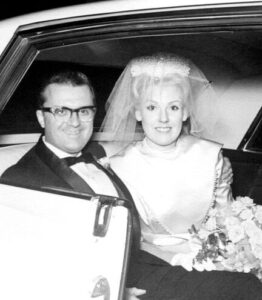Should You Accept the Role of Eulogist?

At my father’s memorial service years ago, my mother asked one of the sons of my parent’s best friends to speak at the service. I remember talking to him before the service and he was nervous and not really sure if he was the right person for the task. To this day, I am so very grateful that he accepted as his words made us all laugh, cry and forever remember the true love and joy that my Dad brought to all of us during his life.
When someone asks you to give a eulogy at a loved one’s memorial service, it can feel like both an honor and a challenge. You want to do it, but are uncertain as to whether you are the best person for the role. In the midst of grief, the idea of speaking in front of others may seem daunting. But saying “yes” is one of the most meaningful ways you can celebrate a life well-lived.
A eulogy is a speech given at a memorial or funeral service to honor and reflect on the life of someone who has passed away. It can include stories, memories, personal reflections, and tributes to the person’s character, values, and impact. There are no set rules for who delivers a eulogy. Typically, it is someone who knew the person well and feels emotionally able to speak in front of a group.
Sometimes, multiple people share the role. In those cases, one might cover early life, another might focus on family, and a third could share funny or meaningful stories. There truly are no rules.
If you’ve been asked to speak, take a moment to reflect. Ask yourself a few questions. Do you feel emotionally ready to speak at the service? Are you in a position to represent this person’s life and values? Will the experience be healing for you and those who are listening?
There is no shame in saying no if you feel unable. But if you can speak, even through tears, your words may be one of the greatest gifts you can offer. Eulogies don’t have to be perfect—they just have to be heartfelt. Whether you share a single story or outline an entire life journey, your sincerity is what people will remember most.
In our next post, we’ll offer practical tips for writing and delivering a eulogy, including how to structure your speech, manage your emotions, and speak with confidence.


















